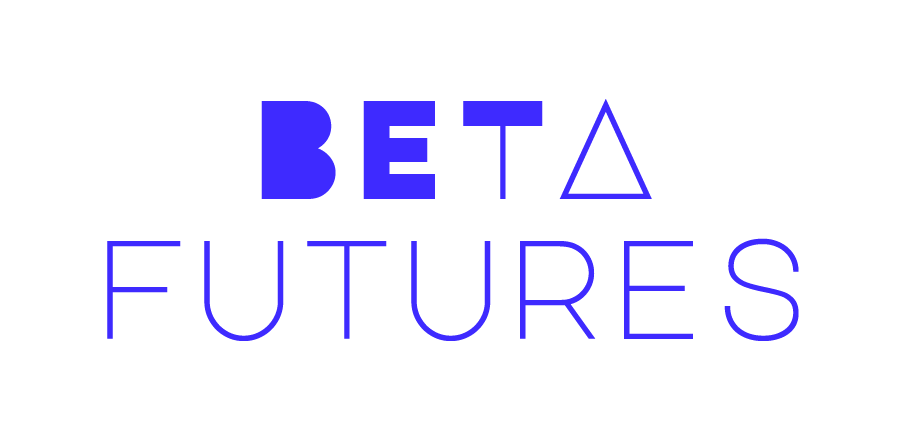
As we examine the digital landscape that we have come to exist within, it quickly becomes apparent that it is riddled with imperfections, biases and flaws. The ever expanding IoT (Internet of Things), all communicating and interacting with one another to capture as much information as possible while delivering loosely defined benefits has captured the attention of users and creators alike. This in turn has made it easier to expand the means by which technology giant’s access user personal information to feed the big data machine and provide more content and variables for their algorithms to train on. Of course the final equation is not one sided, along with the numerous risks and drawbacks, social media and internet based platforms have also “morphed into a digital space for inspirational learning and storytelling. Fundraisers, petitions… simply gaining support for a cause, albeit temporarily, has arguably never been easier” (Devillaz, 2021). The dual nature of the digital space, which brings a little bit of Jekyll and a lot of Hyde with it, has made many people oblivious to the proportions of benefits versus harms that these platforms enable. This becomes a very subjective exercise, where users are often facing the task of passing judgment without the benefit of credible stats and facts, while being steered towards making decisions based on emotions. It becomes based upon most recent platform interactions, which means that it is skewed by the emotions surrounding the most recent, or alternatively the most successful interactions.
This point of view seems to be viewing the phenomenon through rose colored glasses, as we have more insights into what is going on behind the scenes, albeit we don’t have the ability to see everything yet. The recent testimony by Frances Haugen shed some light as to what is happening behind the scenes of the metaverse that is forming right before our eyes. “saw that Facebook repeatedly encountered conflicts between its own profits and our safety. Facebook consistently resolved those conflicts in favour of its own profits. The result has been a system that amplifies division, extremism, and polarization—and undermining societies around the world. In some cases, this dangerous online talk has led to actual violence that harms and even kills people” (Power, 2021) This testimony merely confirmed what many have suspected all along, that social media companies are making questionable decisions when it comes to content, moderation, fake content, social engineering, polarization and hate speech; as they seek to increase their market share and ultimately increase profits. What is even more alarming is that despite very modest controls in place in North America, social media platforms; but Facebook especially, seem to have taken a very laissez faire approach to similar controls abroad. Some of the most fundamental questions that were raised by the testimony include: 1. Facebook employees calling out real-world harm caused by the platform — only to be brushed aside by higher-ups., 2. Zuckerberg’s involvement in decisions to censor some content while allowing other very similar content to remain unchecked. 3. Skewed algorithmic engagement which saw little to no balance and drove extreme content. 4. Lack of balance and accountability when enforcing content rules; “Facebook routinely makes exceptions for powerful actors when enforcing content policy,” 5. Only economic and bottom line threats were able to get reactions on even fundamental issues like human-trafficking. (Morse, 2021).
While some scholars emphasize many of the benefits that arise from utilizing social media platforms, such as Rutvi Zamre who feels that, “While it may not promote a strong sense of collectivism … social media is absolutely instrumental in removing barriers to credibility and allowing greater access to information.” (ibid.) The ease with which it is possible to achieve credibility and access is at times alarming. This is especially true when we consider the amount of questionable, fake and misleading content available online. There is little to no oversight, no peer review or an editor, no ethical filter and no financial accountability. Unlike traditional media where many of these checks and balances are the norm, social media has been given a pass which in turn has produced many loopholes and given rise to the perfect storm.
The rise of digital technology especially in terms of information dissemination has made the lives of journalists easier from a collaboration standpoint “digital communication technology has given rise to large global networks of journalists cooperating on specific investigations—sharing information as well as technological know-how” (Mutsvairo, 2019), yet simultaneously has made it more difficult economically and created more rivalry when it comes to dissemination. The changing landscape of journalism has opened up access to anyone that has an opinion and wants to publish. There is no longer a need to do in-depth research and cross reference sources, as many amateurs now dabble in journalism. As content creation has increased exponentially, the algorithms that ultimately determine which content gets displayed, promoted and rewarded have certainly not been based on merit. This has proven to be a critical component in the spread of misinformation, conspiracy theories and inflammatory content. The competition between legitimate journalists who ascribe to the code of ethics and journalistic standards are competing on a slanted playing field, as many current content creators are only interested in monetizing their creativity. This has often meant producing quantity over quality, which focuses on visual presentation, keywords and evoking emotional reactions. The algorithms have been slanted towards more extreme and polarizing content, as that tends to evoke a reaction, which equals engagement, which in turns generates views and clicks and likes and shares; another words money.
Activism and Slacktivism
The phenomenon of online activism is another domain that has seen a massive influx of followers and to a certain extent worshippers. Some of the questions that have arisen as a result of this form of activism and advocacy centre around the effectiveness of an approach that to some has come to be characterized as lazy and convenient. The first question is very important in the context of traditional, on the ground activism that brings direct help into regions experiencing hardships; and the online form which tends to come from a distance, with no direct human touch points or even a tangible deliverable. Does raising a ruckus help in and of itself? After all, even when issues are exposed for the world to see, someone must still go and do something about it. One will never be able to tweet hunger out of existence. Perhaps it’s a matter of perspective; an online slacktivist who does nothing beyond liking, sharing and experiencing virtual outrage feels they have changed the world when someone else actually goes in to help the hungry. That may be as a result of the different ways in which people in different parts of the world experience activism and their respective roles. From the western perspective and through the lens of the developed world, often with a colonial past and stable modern day democracy; there is a sense of having the ability to change the world. This may be partly due to the fact that the peoples of this world shaped the current world order and have been instrumental in continuing to maintain the philosophy, structure and institutions that have come to dominate the modern world. As a result even those that can’t really do anything for the developed world experiencing hardship, tweet, post and get emotional. This sometimes coincides with the activities and efforts of other people and organizations which have the resources and physical presence to enact help. An interesting comparison can be made with the findings of Denskus and Esser, who found that: “It also seems doubtful that social media contributed in ways indicated by earlier research on epistemic communities and their gatherings… With reference to Rothenbuhler’s ritual theory framework, we therefore argue that traditional, pre-digital conference rituals are still very much alive in the digital age” (2013). In this regard, it seems to reinforce that the social media space cannot take the place of real world action, whether it is in the exchange of ideas or delivering development aid. It is merely one of the tools that can facilitate, but hardly able to shoulder the burden on its own.
However, not everyone sees slacktivism as lazy and convenient. Dr Courtney Radsch, writing in 2011 at the height of the Arab Spring, maintains that “Social media are not a panacea to the political, economic and social problems plaguing the region, but are potentially powerful tools for organising, mobilising, communicating and putting domestic issues on the international agenda.”(Devillaz,2021). In this view, social media is but one of the many tools at people’s disposal, and can neither be seen as being the most or least important one. Perhaps the overemphasis of the power of social media stems from the same or similar romantic ideas that formed the foundation of development aid; martyrdom, selflessness, arrogance and curiosity. “MSF’s founders, including Bernard Kouchner, saw themselves as adventurers. In a book of interviews with the Abbé Pierre, published in 1991, Kouchner has no trouble assuming this personal quest, with a mixture of snobbery and frivolity. Humanitarian assistance became a byword, the rallying cry of a young generation eager for discovery: “Let’s offer adventure to the world’s youth, and elegance. There is an aesthetic dimension to humanitarian assistance – a certain panache!” (Neuman, 2017). To some social media is a tool, to others it’s the essence of their entire engagement.
The online world according to algorithms
Algorithms have become the critical component that has enabled various media platforms to become a modern day iteration of big brother. The all seeing and all knowing entity that has the inside track on everything that we do with the ability to inject direction into our actions. As a result this is no longer just a surveillance scenario, where one’s actions are tracked and monitored. It is an interactive universe, but hardly a two way street. One side has the ability to participate without any influence over the rules of the game. While the other, sets the rules, spins the wheel, watches the hamsters run the maze, analyzes everything and hits reset now and again. But because there are billions of hamsters, enter the algorithm to manage the whole lot. (Denys, 2021) Algorithms are currently powering the social media and digital platforms all over the world. This has created significant efficiencies in administering the platforms that we all use to interact with friends, causes and products. The problem that has arisen has to do with algorithmic bias and the fact that algorithms are simply an extension of the imperfections and biases that have plagued the analog world for a very long time. Because of this, and the fact that “the ownership and control of global media is in fact in the hands of only a few gigantic transnational media corporations” (Kopsa, 2021)
The control of the means of engagement undoubtedly plays an important role when it comes to the nature, quality and content of said engagement. This in turn causes flawed outcomes to proliferate on a much greater scale than ever before. “Thus, the biases in AI models have resulted in much larger impact, adversely affecting far larger groups of consumers and potential employees. Few of these examples are listed below and range from gender to racial bias” (Gupta & Krishnan, 2020). This could be responsible for driving topics, content and pushing some forms of engagement over others. Could algorithms be responsible for the rise and proliferation of slacktivism? Perhaps it isn’t actually driven by people who want to feel important while doing the absolute minimum. This is a distinct possibility, one which deserves to be explored in greater detail. Such in depth analysis may be possible thanks to the whistleblower who exposed the Facebook Papers which for the first time has given us an inside glimpse into the decisions that big data and social media platforms make and how said decisions play out in the digital sphere. The question that arises is who will step in to fix what is broken? How will we get past the current situation which is creating a great deal of carnage in its wake? Will things ever be the same?
Reflections
The blog assignment proved to be more challenging than initially expected for several reasons, some of which being: juggling the workload of the blog creation with the course material, professional and family obligations. An additional challenge appeared in modifying one’s writing style to suit a blog, as most of my writing tended to be academic essays, it was important to truncate, get to the point and focus on asking questions rather than seeking conclusions. It is undoubtedly an important skill to master, the ability to write for a variety of purposes in a manner that will get the desired results. Sadly, the content for good blog posts doesn’t necessarily flow when one wants it to, especially when you’re trying to be original, witty, informative and analytical. What was helpful during the creative process were group member’s posts which would often spark ideas for future posts. Our interests had enough similarities yet also differences in approaches and observations that made for an interesting blog. I chose to feature some quotes from my group mates blog posts, as they worked well with my content and I found them insightful and engaging with just the right academic weight to them. The overall exercise was quite educational, as I have previously debated doing a blog, a debate that had never amounted to an actual product. Now I know why, subconsciously I must have had a suspicion that it will be harder than it looks. Nonetheless, a good blog like “Beta Futures” has the power to motivate creativity.
References:
Denskus, Tobias & Esser, Daniel, E. Social Media and Global Development Rituals: a content analysis of blogs and tweets on the 2010 mdg Summit. 2013. Accessed: October 26, 2021.
Denys, Paul. Algorithm bias, fact or fiction? https://wpmu.mau.se/nmict21group9/2021/10/07/algorithm-bias-fact-or-fiction/ Accessed: October, 7, 2021.
Devillaz, Maximize. Slacktivism hole in one or assisy and miss. https://wpmu.mau.se/nmict21group9/2021/09/30/slacktivism-hole-in-one-or-assist-and-miss/ Accessed: September, 30, 2021.
Gupta, Damini & Krishnan, T,S. Algorithmic Bias: Why Bother? https://cmr.berkeley.edu/2020/11/algorithmic-bias/ Accessed: November, 4, 2021
Kopsa, Kaisa. Globalization and ict are everywhere but are they for everyone. https://wpmu.mau.se/nmict21group9/2021/10/02/globalization-and-ict-are-everywhere-but-are-they-for-everyone/
Matlin, Alicia. Technology for a greener future bringing utopia to life. https://wpmu.mau.se/nmict21group9/2021/10/11/technology-for-a-greener-future-bringing-utopia-to-life/ Accessed: October 11, 2021.
Morse, Jack. 5 damning revelation from the Facebook Papers: Internal Facebook documents paint a troubling picture. 2021. https://mashable.com/article/facebook-papers-revelations Accessed: October 28, 2021
Mutsvairo, Bruce ed. Et al. Data Journalism in the Global South. Palgrave Macmillan. 2019. file:///C:/Users/Home/Downloads/data-journalism-in-the-global-south-2019.pdf
Neuman, Michaël. Dying for humanitarian ideas: Using images and statistics to manufacture humanitarian martyrdom. 2017.
Power, Anamarie. Is facebook prioritizing profit over safety. https://wpmu.mau.se/nmict21group9/2021/10/10/is-facebook-prioritising-profit-over-peace/ Accessed: October, 10, 2021.
Radsch, Courtney Dr. Double-Edged Sword: Social Media’s Subversive Potential. 2011. https://www.huffpost.com/entry/doubleedged-sword-social-_b_826354 Accessed: October 27, 2021.


